100 Notable alumni of
University of Padua
Updated:
The University of Padua is 150th in the world, 51st in Europe, and 5th in Italy by aggregated alumni prominence. Below is the list of 100 notable alumni from the University of Padua sorted by their wiki pages popularity. The directory includes famous graduates and former students along with research and academic staff.
-
Nicolaus Copernicus

- Enrolled in the University of Padua
- Studied in 1501-1503
- Occupations
- philosophercanonastronomerlegal scholarmathematician
- Biography
-
Nicolaus Copernicus was a Renaissance polymath, active as a mathematician, astronomer, and Catholic canon, who formulated a model of the universe that placed the Sun rather than Earth at its center. In all likelihood, Copernicus developed his model independently of Aristarchus of Samos, an ancient Greek astronomer who had formulated such a model some eighteen centuries earlier.
-
Giacomo Casanova

- Enrolled in the University of Padua
- In 1742 graduated with doctor of both laws
- Occupations
- translatornovelistbankeradventurerpoet
- Biography
-
Giacomo Girolamo Casanova was an Italian adventurer who was born in the Republic of Venice and travelled extensively throughout Europe. He is chiefly remembered for his autobiography, written in French and published posthumously as Histoire de ma vie ("The Story of My Life"). That work has come to be regarded as a unique and provocative source of information on the customs and norms of European social life in the 18th century.
-
Andreas Vesalius
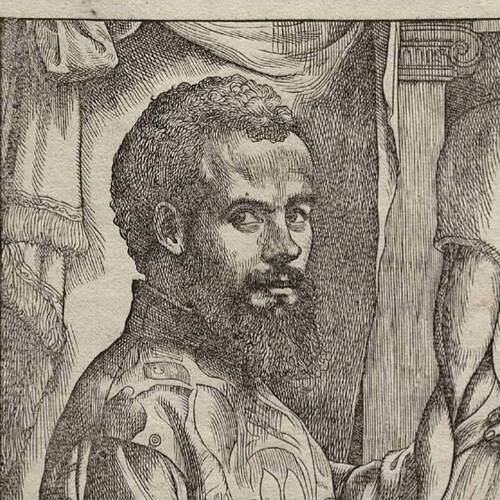
- Occupations
- physicianwriterbiologistanatomistphysiologist
- Biography
-
Andries van Wezel, latinised as Andreas Vesalius, was an anatomist and physician who wrote De Humani Corporis Fabrica Libri Septem (On the fabric of the human body in seven books), which is considered one of the most influential books on human anatomy and a major advance over the long-dominant work of Galen. Vesalius is often referred to as the founder of modern human anatomy. He was born in Brussels, which was then part of the Habsburg Netherlands. He was a professor at the University of Padua (1537–1542) and later became Imperial physician at the court of Emperor Charles V.
-
Stephen Báthory
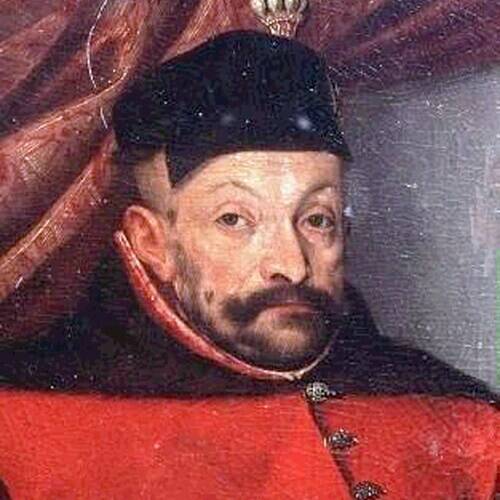
- Occupations
- politician
- Biography
-
Stephen Báthory was Voivode of Transylvania (1571–1576), Prince of Transylvania (1576–1586), as well as King of Poland and Grand Duke of Lithuania (1576–1586).
-
Albertus Magnus
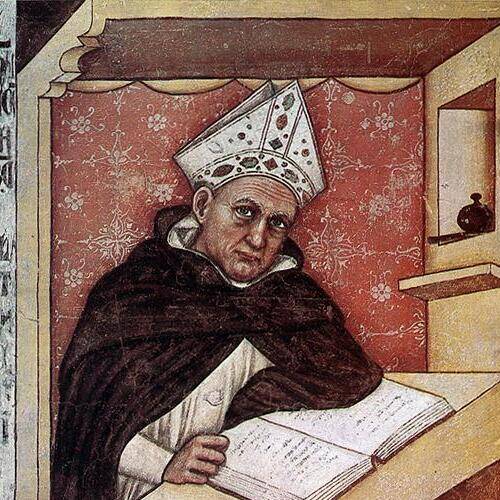
- Occupations
- entomologisteconomistCatholic bishopastrologertheologian
- Biography
-
Albertus Magnus OP, also known as Saint Albert the Great, Albert of Swabia or Albert of Cologne, was a German Dominican friar, philosopher, scientist, and bishop, considered one of the greatest medieval philosophers and thinkers.
-
William Harvey
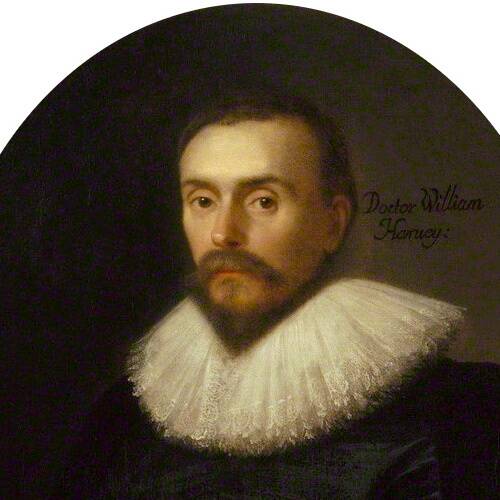
- Enrolled in the University of Padua
- 1599-1602 graduated with Doctor of Medicine
- Occupations
- anatomistphysicianbiologistphysiologist
- Biography
-
William Harvey was an English physician who made influential contributions to anatomy and physiology. He was the first known physician to describe completely, and in detail, pulmonary and systemic circulation as well as the specific process of blood being pumped to the brain and the rest of the body by the heart (though earlier writers, such as Realdo Colombo, Michael Servetus, and Jacques Dubois, had provided precursors to some of his theories).
-
Giovanni Pico della Mirandola
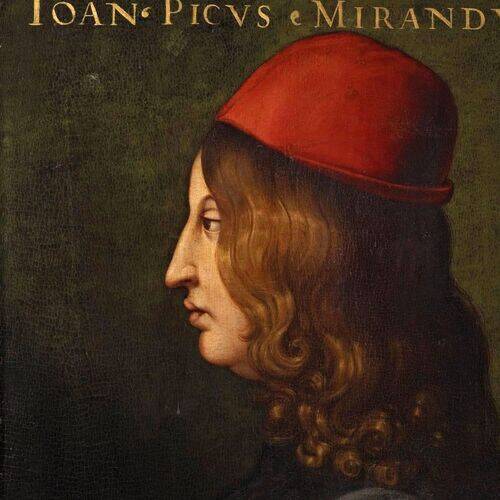
- Occupations
- writerphilosopher
- Biography
-
Giovanni Pico dei conti della Mirandola e della Concordia, known as Pico della Mirandola, was an Italian Renaissance nobleman and philosopher. He is famed for the events of 1486, when, at the age of 23, he proposed to defend 900 theses on religion, philosophy, natural philosophy, and magic against all comers, for which he wrote the Oration on the Dignity of Man, which has been called the "Manifesto of the Renaissance", and a key text of Renaissance humanism and of what has been called the "Hermetic Reformation". He was the founder of the tradition of Christian Kabbalah, a key tenet of early modern Western esotericism. The 900 Theses was the first printed book to be universally banned by the Church. Pico is sometimes seen as a proto-Protestant, because his 900 theses anticipated many Protestant views.
-
Jan Kochanowski
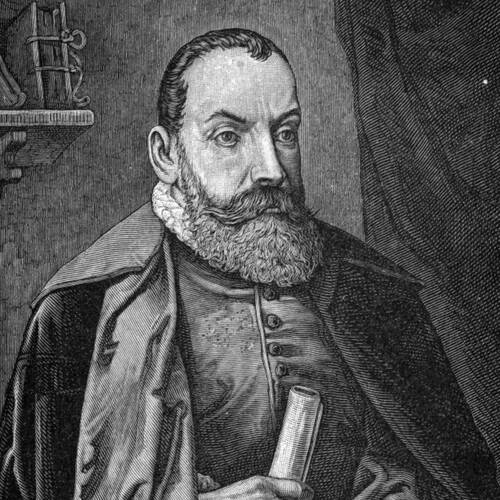
- Enrolled in the University of Padua
- Studied in 1552-1555
- Occupations
- writertranslatorplaywrightpoet
- Biography
-
Jan Kochanowski was a Polish Renaissance poet who wrote in Latin and Polish and established poetic patterns that would become integral to Polish literary language. He has been called the greatest Polish poet before Adam Mickiewicz (the latter, a leading Romantic writer) and one of the most influential Slavic poets prior to the 19th century.
-
Ugo Foscolo
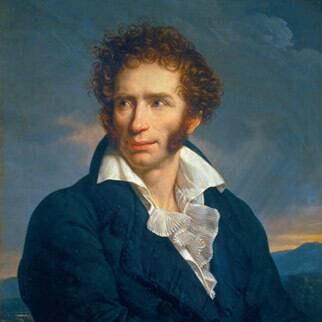
- Occupations
- translatorpoetliterary criticwriterplaywright
- Biography
-
Ugo Foscolo, born Niccolò Foscolo, was an Italian writer, revolutionary and poet.
-
Francis de Sales
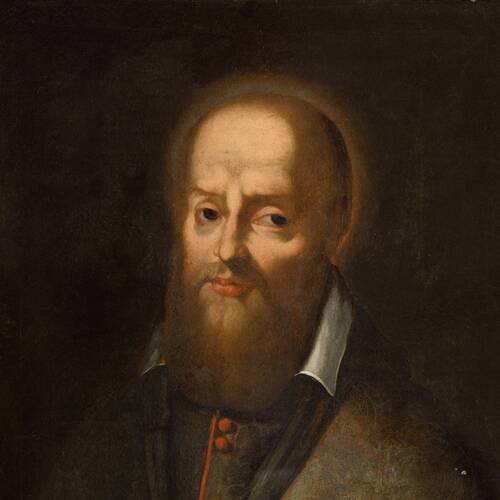
- Occupations
- theologianwriterCatholic priestCatholic bishop
- Biography
-
Francis de Sales, C.O., O.M. was a Savoyard Catholic prelate who served as Bishop of Geneva and is a saint of the Catholic Church. He became noted for his deep faith and his gentle approach to the religious divisions in his land resulting from the Protestant Reformation. He is known also for his writings on the topic of spiritual direction and spiritual formation, particularly the Introduction to the Devout Life and the Treatise on the Love of God.
-
Carlo Goldoni
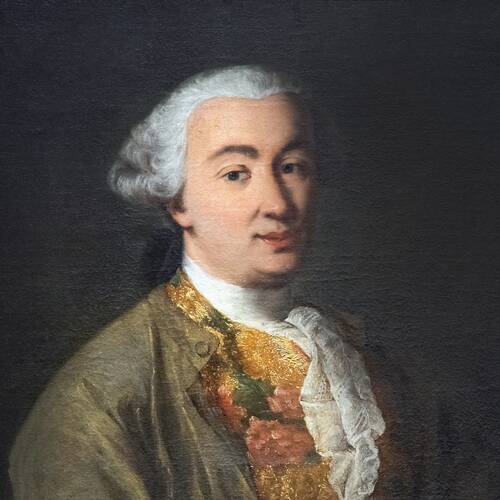
- Occupations
- translatorpoetpoet lawyerdirectorwriter
- Biography
-
Carlo Osvaldo Goldoni was an Italian playwright and librettist from the Republic of Venice. His works include some of Italy's most famous and best-loved plays. Audiences have admired the plays of Goldoni for their ingenious mix of wit and honesty. His plays offered his contemporaries images of themselves, often dramatizing the lives, values, and conflicts of the emerging middle classes. Though he wrote in French and Italian, his plays make rich use of the Venetian language, regional vernacular, and colloquialisms. Goldoni also wrote under the pen name and title Polisseno Fegeio, Pastor Arcade, which he claimed in his memoirs the "Arcadians of Rome" bestowed on him.
-
John of Nepomuk
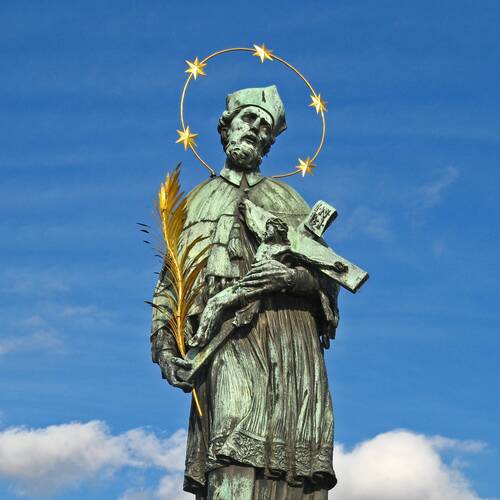
- Occupations
- Catholic priest
- Biography
-
John of Nepomuk was a saint of Bohemia (Czech Republic) who was drowned in the Vltava river at the behest of King Wenceslaus IV of Bohemia. Later accounts state that he was the confessor of the queen of Bohemia and refused to divulge the secrets of the confessional. On the basis of this account, John of Nepomuk is considered the first martyr of the Seal of the Confessional, a patron against calumnies and, because of the manner of his death, a protector from floods and drowning.
-
Ioannis Kapodistrias
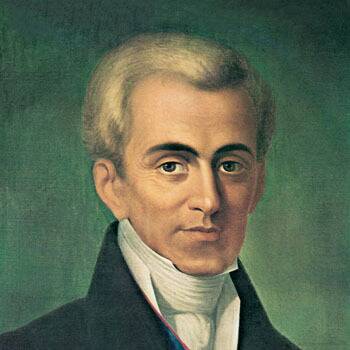
- Occupations
- physicianpoliticiandiplomat
- Biography
-
Count Ioannis Antonios Kapodistrias, sometimes anglicized as John Capodistrias, was a Greek statesman who was one of the most distinguished politicians and diplomats of 19th-century Europe.
-
Nicholas of Cusa

- Enrolled in the University of Padua
- Studied in 1417-1423
- Occupations
- writerjuristscribeCatholic bishopphilosopher
- Biography
-
Nicholas of Cusa, also referred to as Nicholas of Kues and Nicolaus Cusanus, was a German Catholic bishop and polymath active as a philosopher, theologian, jurist, mathematician, and astronomer. One of the first German proponents of Renaissance humanism, he made spiritual and political contributions to European culture. A notable example of this is his mystical or spiritual writings on "learned ignorance," as well as his participation in power struggles between Rome and the German states of the Holy Roman Empire.
-
Torquato Tasso
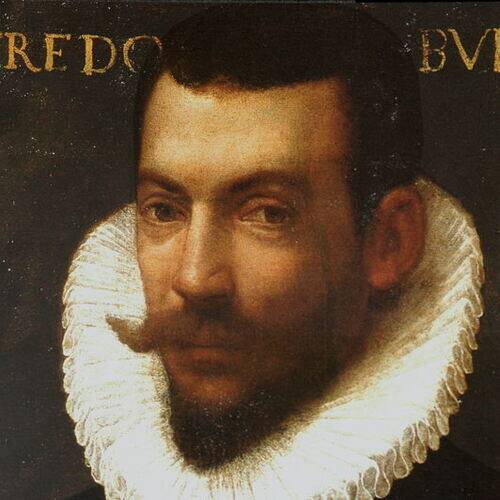
- Occupations
- playwrightwriterprose writerpoet
- Biography
-
Torquato Tasso was an Italian poet of the 16th century, known for his 1591 poem Gerusalemme liberata (Jerusalem Delivered), in which he depicts a highly imaginative version of the combats between Christians and Muslims at the end of the First Crusade, during the Siege of Jerusalem of 1099.
-
Innocent VIII
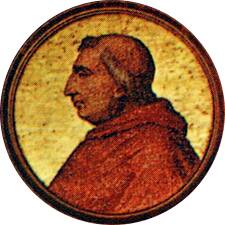
- Occupations
- Catholic priest
- Biography
-
Pope Innocent VIII, born Giovanni Battista Cybo (or Cibo), was head of the Catholic Church and ruler of the Papal States from 29 August 1484 to his death, in July 1492. Son of the viceroy of Naples, Cybo spent his early years at the Neapolitan court. He became a priest in the retinue of Cardinal Calandrini, half-brother to Pope Nicholas V (1447–55); Bishop of Savona under Pope Paul II; and with the support of Cardinal Giuliano Della Rovere he was made a cardinal by Pope Sixtus IV. After intense politicking by Della Rovere, Cybo was elected pope in 1484. King Ferdinand I of Naples had supported Cybo's competitor, Rodrigo Borgia. The following year, Pope Innocent supported the barons in their failed revolt.
-
Gerolamo Cardano
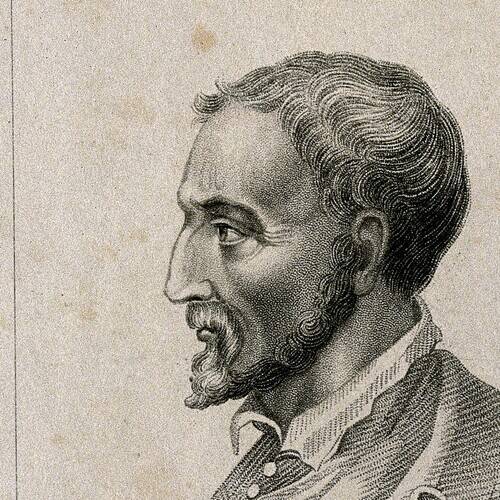
- Enrolled in the University of Padua
- 1522-1526 studied medicine
- Occupations
- inventorphysicianastrologerphilosophermathematician
- Biography
-
Gerolamo Cardano was an Italian polymath whose interests and proficiencies ranged through those of mathematician, physician, biologist, physicist, chemist, astrologer, astronomer, philosopher, music theorist, writer, and gambler. He became one of the most influential mathematicians of the Renaissance and one of the key figures in the foundation of probability; he introduced the binomial coefficients and the binomial theorem in the Western world. He wrote more than 200 works on science.
-
Tommaso Campanella
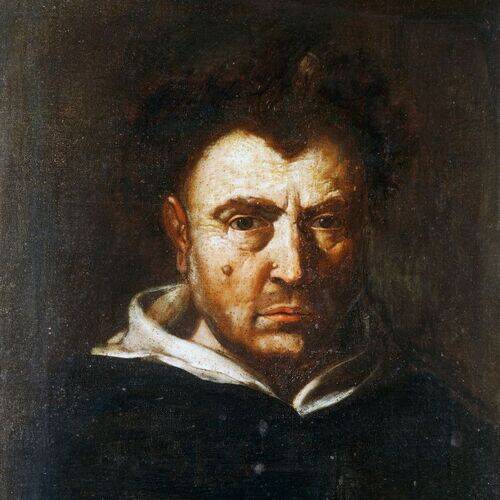
- Occupations
- philosopherreligious figurewritertheologianscience fiction writer
- Biography
-
Tommaso Campanella OP, baptized Giovanni Domenico Campanella, was an Italian Dominican friar, philosopher, theologian, astrologer, and poet.
-
David Parenzo
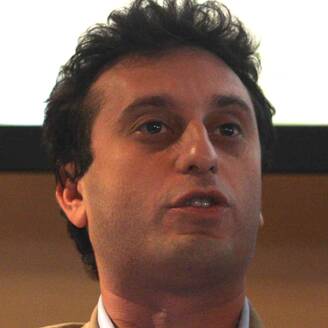
- Occupations
- journalisttelevision presenterradio personality
- Biography
-
David Parenzo is an Italian journalist and radio/television presenter. He is mostly known for being host, together with Giuseppe Cruciani, of the Italian radio show La Zanzara.
-
Carlo Rovelli
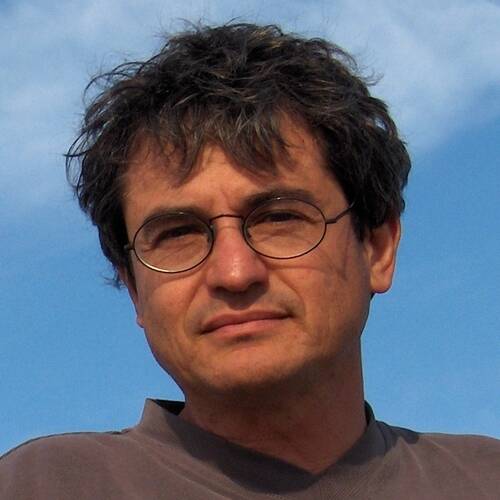
- Occupations
- writerphysicistuniversity teacher
- Biography
-
Carlo Rovelli is an Italian theoretical physicist and writer who has worked in Italy, the United States, France, and Canada. He is currently Emeritus Professor at the Centre de Physique Theorique of Marseille in France, a Distinguished Visiting Research Chair at the Perimeter Institute, core member of the Rotman Institute of Philosophy of Western University in Canada, and Fractal Faculty of the Santa Fe Institute in The United States.
-
Reginald Pole
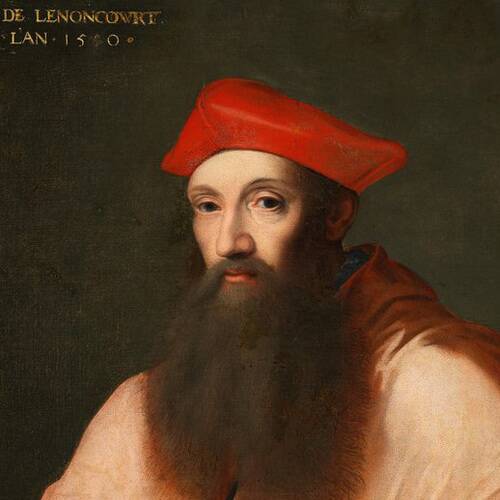
- Occupations
- Catholic deaconCatholic priestCatholic bishopdiplomat
- Biography
-
Reginald Pole was an English cardinal and the last Catholic Archbishop of Canterbury, holding the office from 1556 to 1558 during the Counter-Reformation.
-
Jeremi Wiśniowiecki
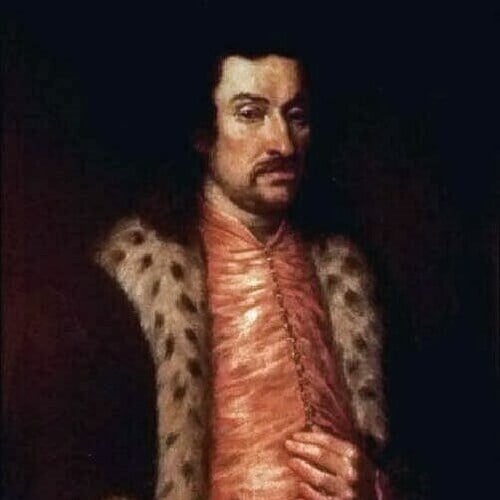
- Occupations
- politician
- Biography
-
Prince Jeremi Michał Korybut Wiśniowiecki, nicknamed Hammer on the Cossacks, was a notable member of the aristocracy of the Polish–Lithuanian Commonwealth, Prince of Vyshnivets, Lubny and Khorol in the Crown of the Kingdom of Poland and the father of the future King of Poland, Michael I.
-
Paul V
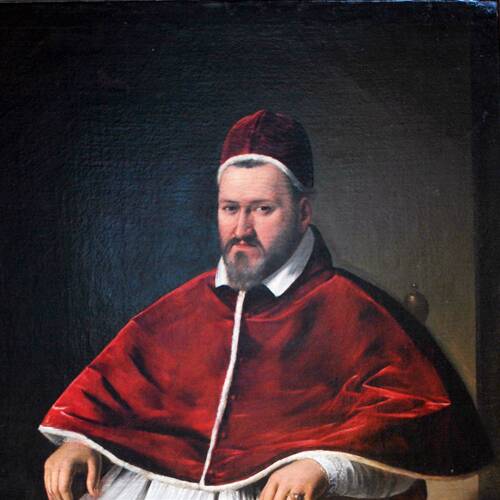
- Occupations
- Latin Catholic priestCatholic bishop
- Biography
-
Pope Paul V, born Camillo Borghese, was head of the Catholic Church and ruler of the Papal States from 16 May 1605 to his death, in January 1621. In 1611, he honored Galileo Galilei as a member of the papal Accademia dei Lincei and supported his discoveries. In 1616, Pope Paul V instructed Cardinal Robert Bellarmine to inform Galileo that the Copernican theory could not be taught as fact, but Bellarmine's certificate allowed Galileo to continue his studies in search for evidence and use the geocentric model as a theoretical device. That same year Paul V assured Galileo that he was safe from persecution so long as he, the Pope, should live. Bellarmine's certificate was used by Galileo for his defense at the trial of 1633.
-
Clement VIII
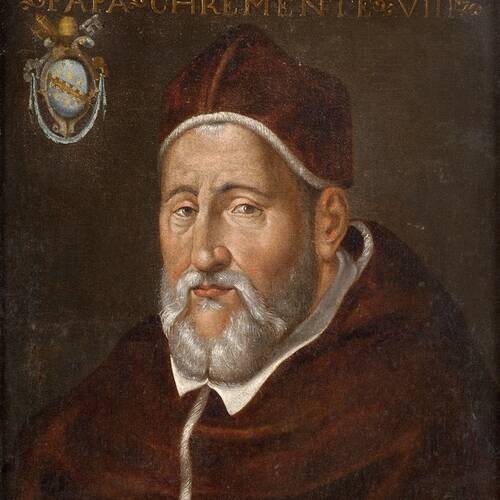
- Occupations
- diplomatCatholic priest
- Biography
-
Pope Clement VIII, born Ippolito Aldobrandini, was head of the Catholic Church and ruler of the Papal States from 30 January 1592 to his death in March 1605.
-
Giuseppe Tartini
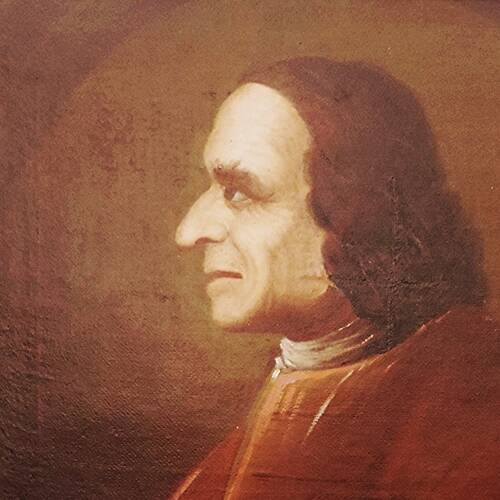
- Occupations
- composermusic educatorviolinistmusic theoristmusicologist
- Biography
-
Giuseppe Tartini was an Italian composer and violinist of the Baroque era born in Pirano in the Republic of Venice (now Piran, Slovenia). Tartini was a prolific composer, composing over a hundred pieces for the violin, the majority of them violin concertos. He is best remembered for his Violin Sonata in G Minor (the Devil's Trill Sonata).
-
Francysk Skaryna
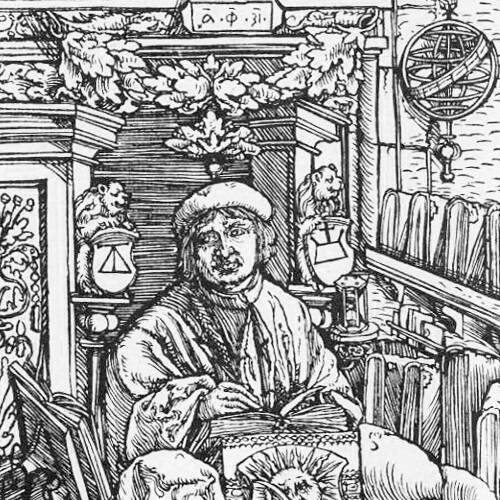
- Occupations
- entrepreneurphysicianBible translatorpublisherwriter
- Biography
-
Francysk Skaryna was a Belarusian humanist, physician, and translator. He is known to be one of the first book printers in the Grand Duchy of Lithuania and in all of Eastern Europe, laying the groundwork for the development of the Belarusian izvod of the Church Slavonic language.
-
Massimo Cacciari
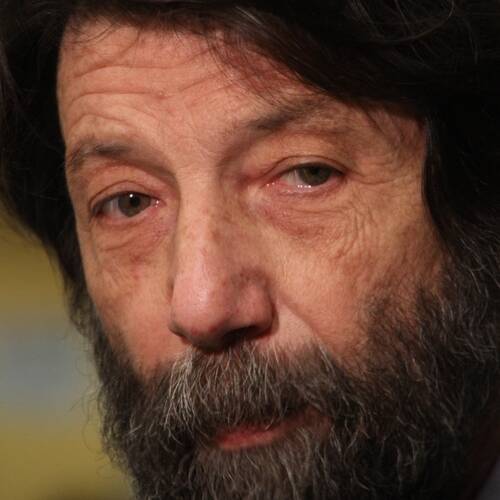
- Occupations
- philosopherpoliticianauthor
- Biography
-
Massimo Cacciari is an Italian philosopher and politician who served as Mayor of Venice from 1993 to 2000 and from 2005 to 2010.
-
Robert Bellarmine
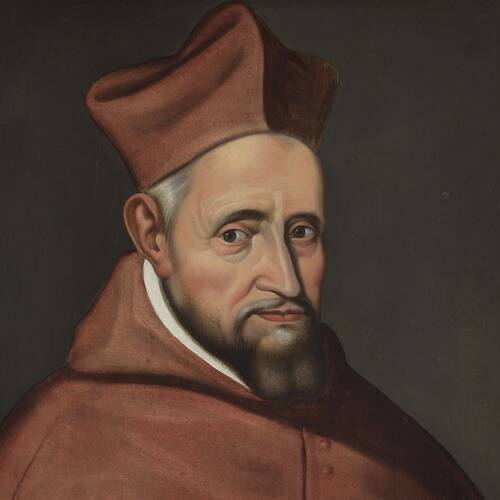
- Occupations
- philologisttheologianuniversity teacherLatin Catholic priestHebraist
- Biography
-
Robert Bellarmine SJ was an Italian Jesuit and a cardinal of the Catholic Church. He was canonized a saint in 1930 and named Doctor of the Church, one of only 37. He was one of the most important figures in the Counter-Reformation.
-
Pius IV
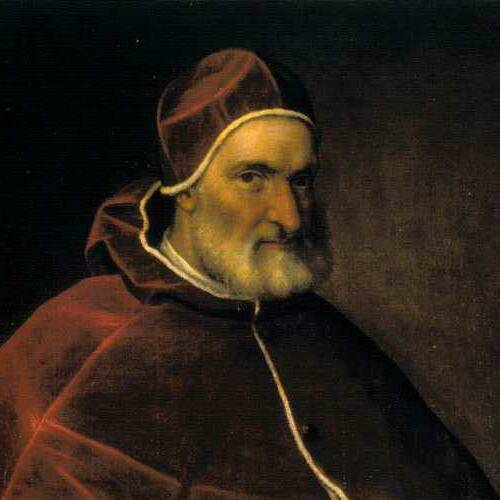
- Occupations
- Catholic priestCatholic bishop
- Biography
-
Pope Pius IV, born Giovanni Angelo Medici, was head of the Catholic Church and ruler of the Papal States from 25 December 1559 to his death, in December 1565. Born in Milan, his family considered itself a branch of the House of Medici and used the same coat of arms. Although modern historians have found no proof of this connection, the Medici of Florence recognised the claims of the Medici of Milan in the early 16th century.
-
Urban VII
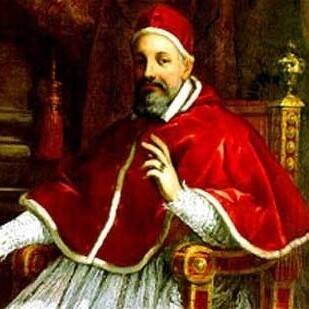
- Occupations
- Catholic priesttransitional deaconCatholic bishop
- Biography
-
Pope Urban VII, born Giovanni Battista Castagna, was head of the Catholic Church, and ruler of the Papal States from 15 to 27 September 1590. His papacy was the shortest recognized in history, during which a smoking ban encompassing churches across the world was implemented.
-
Johan van Oldenbarnevelt
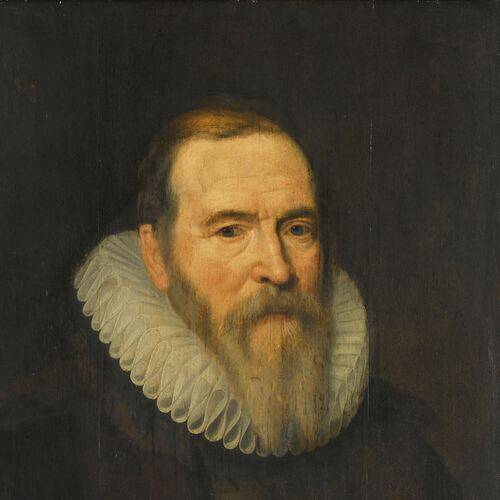
- Occupations
- politiciandiplomatlawyer
- Biography
-
Johan van Oldenbarnevelt, Heer van Berkel en Rodenrijs (1600), Gunterstein (1611) and Bakkum (1613), was a Dutch statesman and revolutionary who played an important role in the Dutch struggle for independence from Spain. He is generally considered as one of the greatest and most important political figures in the history of The Netherlands.
-
Elena Cornaro Piscopia
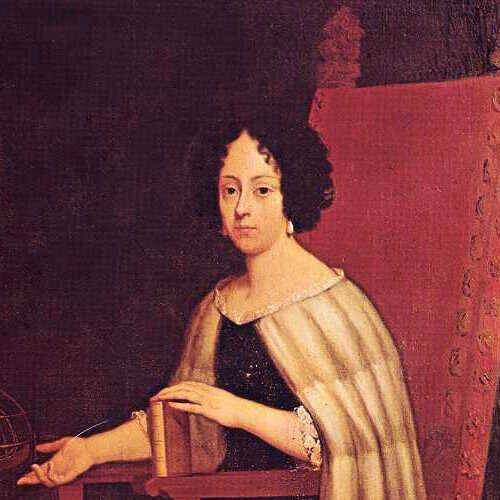
- Occupations
- medicuniversity teachertheologianphilosophermathematician
- Biography
-
Elena Lucrezia Cornaro Piscopia or Elena Lucrezia Corner ( Venetian: [koɾˈnɛɾ], Italian: [korˈnɛr]), also known in English as Helen Cornaro, was a Venetian philosopher of noble descent who in 1678 became one of the first women to receive an academic degree from a university and the first to receive a Doctor of Philosophy degree.
-
Lorenzo Fontana
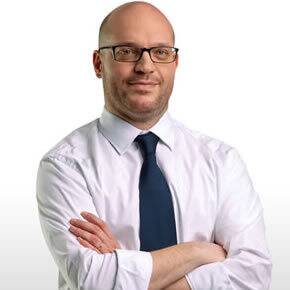
- Occupations
- politician
- Biography
-
Lorenzo Fontana is an Italian politician and member of the League (Lega), who is serving as President of the Chamber of Deputies since 14 October 2022.
-
Federico Faggin
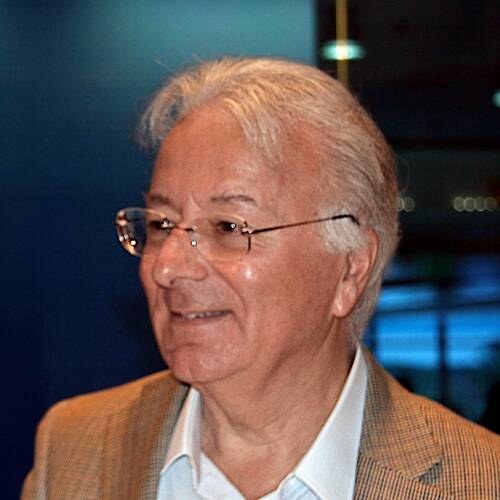
- Occupations
- businesspersonentrepreneurphysicistelectrical engineerengineer
- Biography
-
Federico Faggin is an Italian-American physicist, engineer, inventor and entrepreneur. He is best known for designing the first commercial microprocessor, the Intel 4004. He led the 4004 (MCS-4) project and the design group during the first five years of Intel's microprocessor effort. Faggin also created, while working at Fairchild Semiconductor in 1968, the self-aligned MOS (metal–oxide–semiconductor) silicon-gate technology (SGT), which made possible MOS semiconductor memory chips, CCD image sensors, and the microprocessor. After the 4004, he led development of the Intel 8008 and 8080, using his SGT methodology for random logic chip design, which was essential to the creation of early Intel microprocessors. He was co-founder (with Ralph Ungermann) and CEO of Zilog, the first company solely dedicated to microprocessors, and led the development of the Zilog Z80 and Z8 processors. He was later the co-founder and CEO of Cygnet Technologies, and then Synaptics.
-
Clement XIII
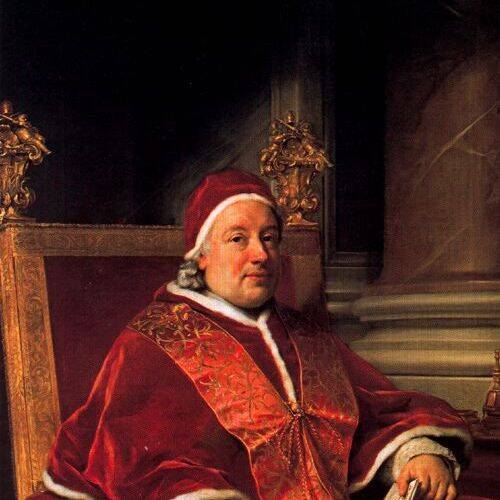
- Occupations
- Catholic priestCatholic bishop
- Biography
-
Pope Clement XIII, born Carlo della Torre di Rezzonico, was head of the Catholic Church and ruler of the Papal States from 6 July 1758 to his death in February 1769. He was installed on 16 July 1758.
-
Jan Zamoyski
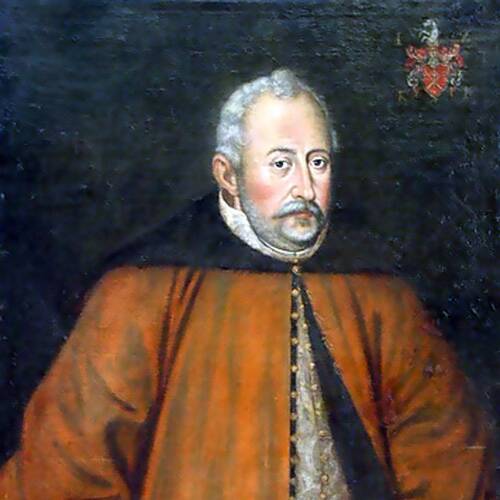
- Occupations
- diplomatpolitician
- Biography
-
Jan Sariusz Zamoyski was a Polish nobleman, magnate, statesman and the 1st ordynat of Zamość. He served as the Royal Secretary from 1565, Deputy Chancellor from 1576, Grand Chancellor of the Crown from 1578, and Great Hetman of the Crown from 1581.
-
Renato Brunetta
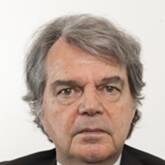
- Enrolled in the University of Padua
- Studied political studies
- Occupations
- politicianeconomistjournalistprofessor
- Biography
-
Renato Brunetta is an Italian economist and politician. He was the Minister of Public Administration and Innovation from 8 May 2008 to 16 November 2011 in the Berlusconi government. He was also the Minister for Public Administration in the Draghi government, from 13 February 2021 until 22 October 2022. He was the head of Forza Italia's deputies group at the Chamber of Deputies from 2013 to 2018.
-
Franco Basaglia
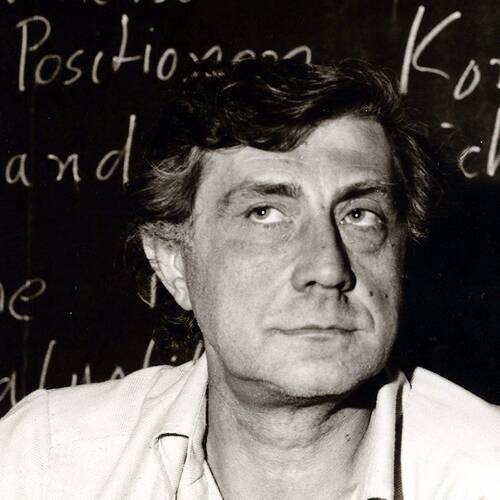
- Occupations
- neurologistexistential therapistanthropologistpsychiatrist
- Biography
-
Franco Basaglia was an Italian psychiatrist, neurologist, professor, and disability advocate who proposed the dismantling of psychiatric hospitals, pioneer of the modern concept of mental health, Italian psychiatry reformer, figurehead and founder of Democratic Psychiatry, architect, and principal proponent of Law 180, which abolished mental hospitals in Italy. He is considered to be the most influential Italian psychiatrist of the 20th century.
-
Carlo Nordio
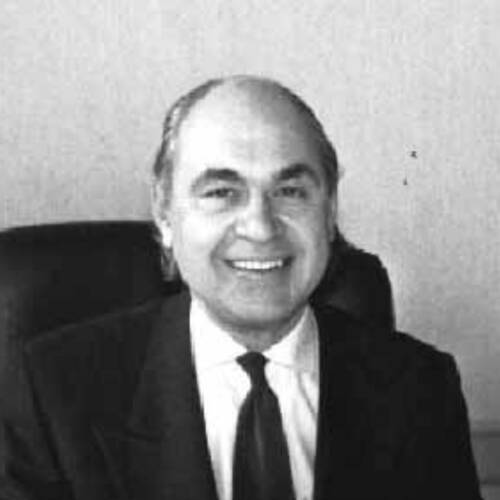
- Occupations
- judge
- Biography
-
Carlo Nordio is an Italian politician, former magistrate and prosecutor, who is serving as Italian Minister of Justice since 22 October 2022, in Giorgia Meloni's government. In the 2022 Italian presidential election he was the candidate of Brothers of Italy for President of Italy. In the 2022 Italian general election he was elected to the Chamber of Deputies.
-
Pietro Bembo
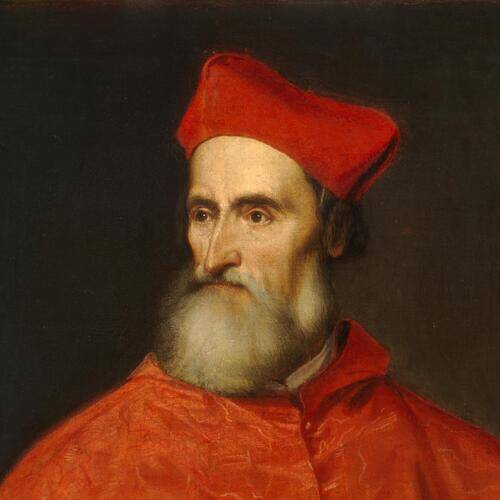
- Occupations
- poetChristian ministerphilologisthumanistprose writer
- Biography
-
Pietro Bembo, O.S.I.H. was a Venetian scholar, poet, and literary theorist who also was a member of the Knights Hospitaller, and a cardinal of the Catholic Church. As an intellectual of the Italian Renaissance (15th–16th c.), Pietro Bembo greatly influenced the development of the Tuscan dialect as a literary language for poetry and prose, which, by later codification into a standard language, became the modern Italian language. In the 16th century, Bembo's poetry, essays and books proved basic to reviving interest in the literary works of Petrarch. In the field of music, Bembo's literary writing techniques helped composers develop the techniques of musical composition that made the madrigal the most important secular music of 16th-century Italy.
-
Sara Cunial
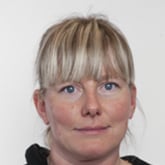
- Occupations
- politician
- Biography
-
Sara Cunial is an Italian politician, formerly of the Five Star Movement. She is the founder and leader of Vita and led the electoral list into the 2022 Italian general election but was not re-elected.
-
Alexander VIII
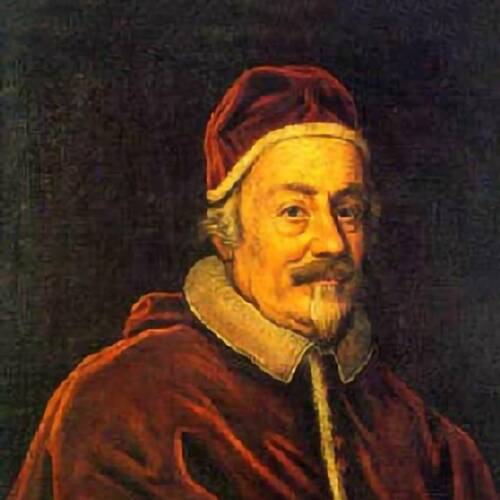
- Occupations
- Catholic priestCatholic bishop
- Biography
-
Pope Alexander VIII, born Pietro Vito Ottoboni, was head of the Catholic Church and ruler of the Papal States from 6 October 1689 to his death in February 1691.
-
Francesco Guicciardini
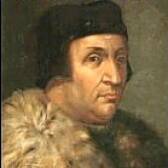
- Occupations
- politicianwriterhistoriandiplomatphilosopher
- Biography
-
Francesco Guicciardini was an Italian historian and statesman. A friend and critic of Niccolò Machiavelli, he is considered one of the major political writers of the Italian Renaissance. In his masterpiece, The History of Italy, Guicciardini paved the way for a new style in historiography with his use of government sources to support arguments and the realistic analysis of the people and events of his time.
-
Luigi Nono
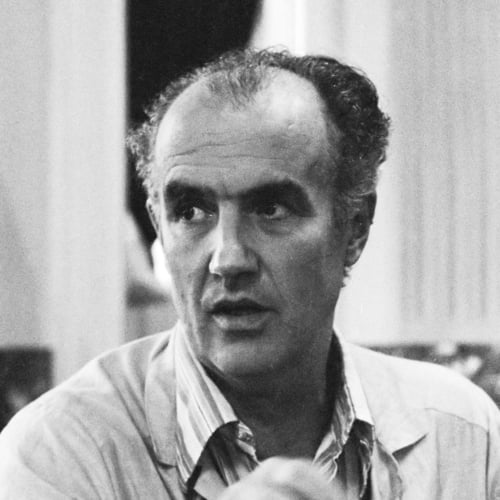
- Occupations
- composermusic educatormusicianconductorclassical composer
- Biography
-
Luigi Nono was an Italian avant-garde composer of classical music.
-
Gregory XIV
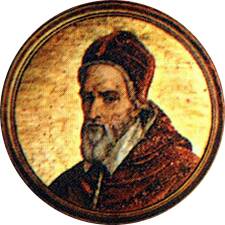
- Occupations
- Catholic priestpoliticianCatholic bishop
- Biography
-
Pope Gregory XIV, born Niccolò Sfondrato or Sfondrati, was head of the Catholic Church and ruler of the Papal States from 5 December 1590 to his death, in October 1591.
-
Alessandro Valignano
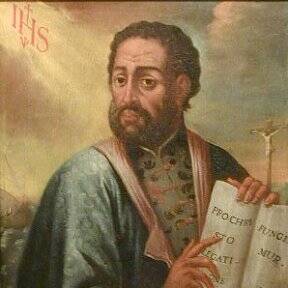
- Occupations
- Catholic priestmissionarywriter
- Biography
-
Alessandro Valignano, S.J., sometimes Valignani, was an Italian Jesuit priest and missionary born in Chieti, part of the Kingdom of Naples, who helped supervise the introduction of Catholicism to the Far East, and especially to Japan.
-
Georgius Agricola
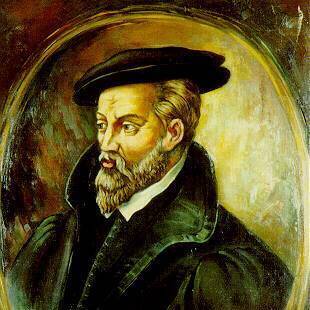
- Occupations
- philosopherphysicianmineralogistmetallurgistchemist
- Biography
-
Georgius Agricola was a German Humanist scholar, mineralogist and metallurgist. Born in the small town of Glauchau, in the Electorate of Saxony of the Holy Roman Empire, he was broadly educated, but took a particular interest in the mining and refining of metals. He was the first to drop the Arabic definite article al-, exclusively writing chymia and chymista in describing activity that we today would characterize as chemical or alchemical, giving chemistry its modern name. For his groundbreaking work De Natura Fossilium published in 1546, he is generally referred to as the father of mineralogy and the founder of geology as a scientific discipline.
-
Marsilius of Padua
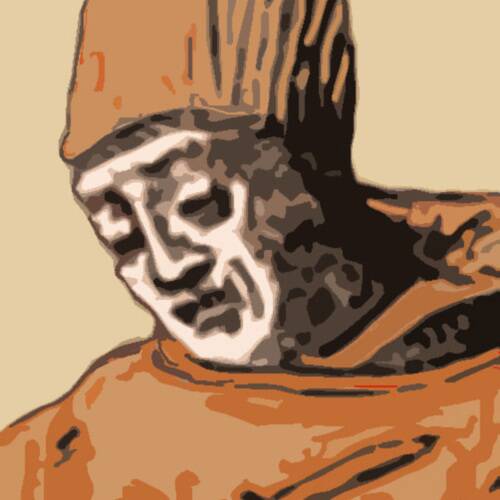
- Occupations
- university teacherpoliticianwriterphilosopher
- Biography
-
Marsilius of Padua was an Italian scholar, trained in medicine, who practiced a variety of professions. He was also an important 14th-century political figure. His political treatise Defensor pacis (The Defender of Peace), an attempt to refute papal claims to a "plenitude of power" in affairs of both church and state, is seen by some scholars as the most revolutionary political treatise written in the later Middle Ages. It is one of the first examples of a trenchant critique of caesaropapism in Western Europe. Marsilius is sometimes seen as a forerunner of the Protestant reformation, because many of his beliefs were later adopted by Calvin and Luther.
-
Gianni De Michelis
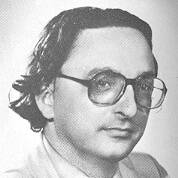
- Occupations
- politiciandiplomatchemist
- Biography
-
Gianni De Michelis was an Italian politician, a member of the Italian Socialist Party (PSI), who served as minister in many Italian governments in the 1980s and early 1990s.
-
Mariano Rumor
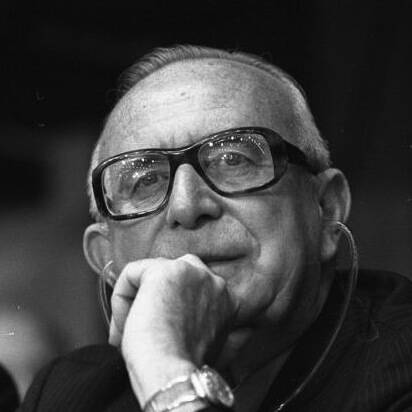
- Occupations
- partisanpoliticiandiplomat
- Biography
-
Mariano Rumor was an Italian politician and statesman. A member of the Christian Democracy (DC), he served as the 39th prime minister of Italy from December 1968 to August 1970 and again from July 1973 to November 1974. As prime minister, he led five different governments, supported by various coalitions.
-
Edoardo Stoppa
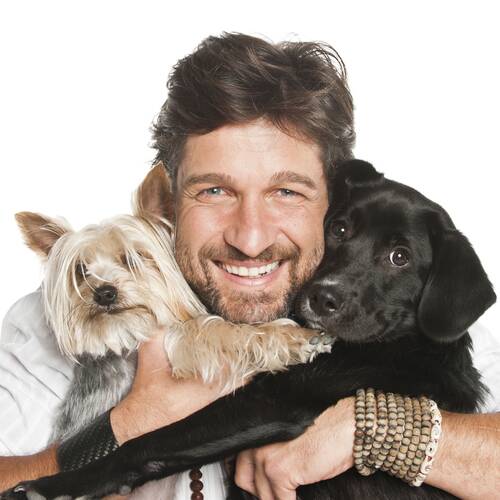
- Occupations
- television presenter
- Biography
-
Edoardo Stoppa is an Italian television personality.
-
Arno Kompatscher
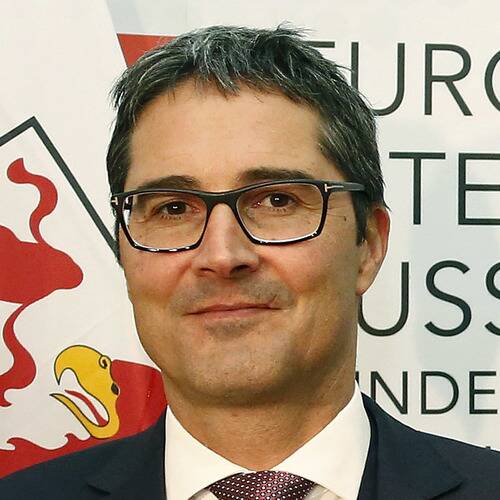
- Occupations
- juristpolitician
- Biography
-
Arno Kompatscher is an Italian politician and governor of South Tyrol. He is the incumbent president of Trentino-Alto Adige/Südtirol, serving his second term non-consecutively since 13 March 2024. He previously served as the president of Trentino-Alto Adige/Südtirol from 15 June 2016 to 7 July 2021.
-
Norma Cossetto
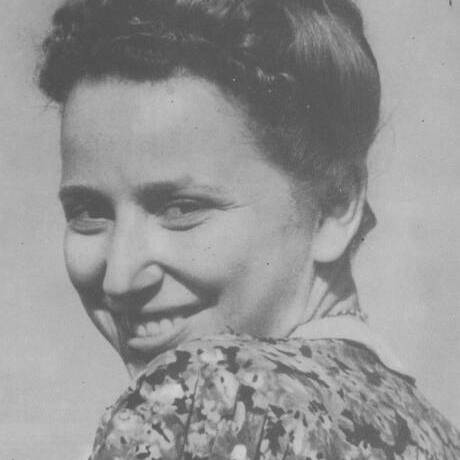
- Occupations
- student
- Biography
-
Norma Cossetto was an Istrian Italian student, killed by the Yugoslavian communists and thrown into a foiba.
-
Girolamo Fracastoro
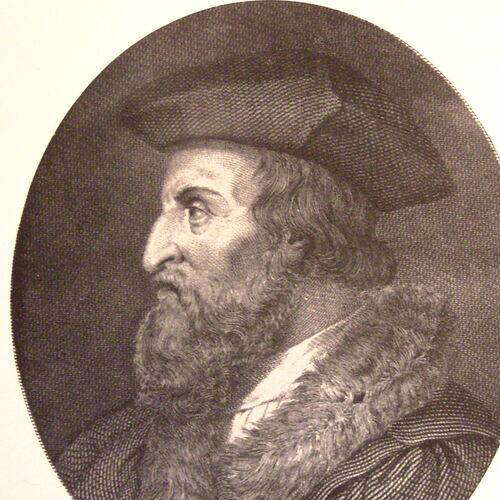
- Occupations
- astronomergeographerphysician writerepidemiologistlecturer
- Biography
-
Girolamo Fracastoro was an Italian physician, poet, and scholar in mathematics, geography and astronomy. Fracastoro subscribed to the philosophy of atomism, and rejected appeals to hidden causes in scientific investigation. His studies of the mode of syphilis transmission are an early example of epidemiology.
-
Janus Pannonius
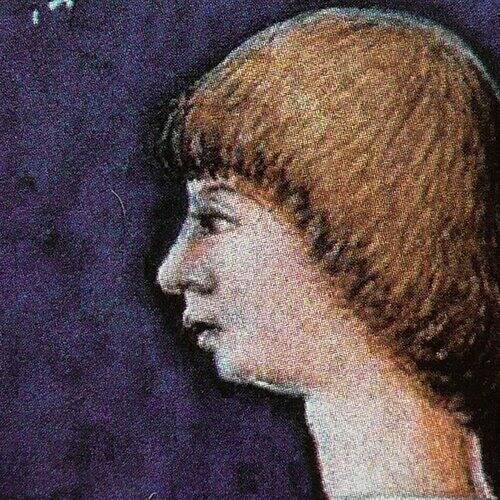
- Enrolled in the University of Padua
- In 1458 studied canon law
- Occupations
- Catholic priestbishoppoetdiplomatCatholic bishop
- Biography
-
Janus Pannonius was a Hungarian Latinist, poet, diplomat and Bishop of Pécs. He was the most significant poet of the Renaissance in the Kingdom of Hungary and one of the better-known figures of humanist poetry in Europe.
-
Alessandro Zan
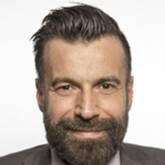
- Occupations
- politician
- Biography
-
Alessandro Zan is an Italian left-wing politician and LGBT activist.
-
Alexandros Mavrokordatos
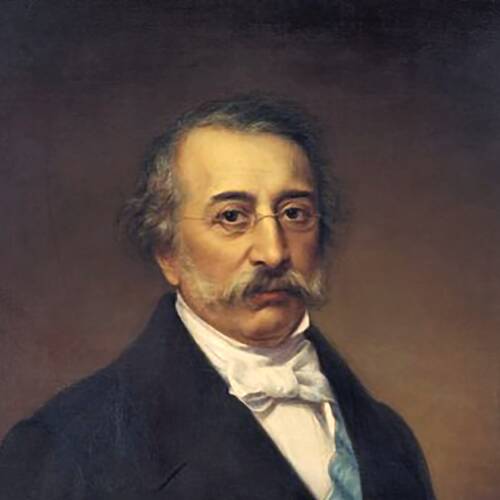
- Occupations
- diplomatpolitician
- Biography
-
Alexandros Mavrokordatos was a Greek statesman, diplomat, politician and member of the Mavrocordatos family of Phanariotes.
-
Marko Marulić
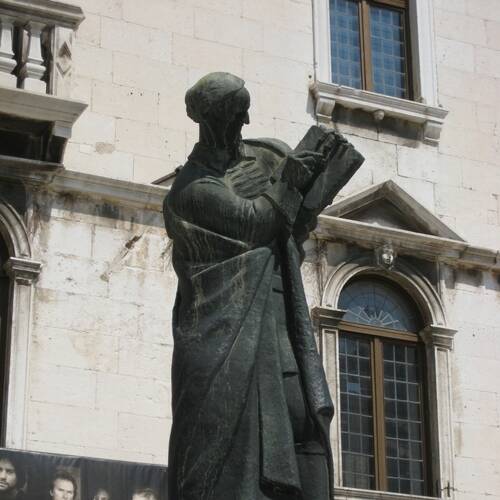
- Occupations
- translatorpoetexaminerjudgewriter
- Biography
-
Marko Marulić Splićanin, was a Croatian poet, lawyer, judge, and Renaissance humanist. He is the national poet of Croatia. According to George J. Gutsche, Marulić's epic poem Judita "is the first long poem in Croatian", and "gives Marulić a position in his own literature comparable to Dante in Italian literature." Marulić's Latin poetry is of such high quality that his contemporaries dubbed him "The Christian Virgil." He has been called the "crown of the Croatian medieval age", the "father of the Croatian Renaissance", and "The Father of Croatian literature."
-
Gabriele Falloppio
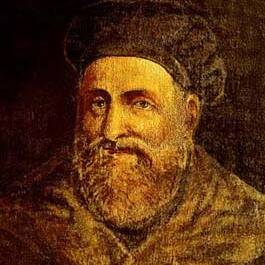
- Occupations
- anatomistphysicianCatholic priestbotanistuniversity teacher
- Biography
-
Gabriele Falloppio was an Italian priest and anatomist often known by his Latin name Fallopius. He was one of the most important anatomists and physicians of the sixteenth century, giving his name to the fallopian tube.
-
Paolo dal Pozzo Toscanelli
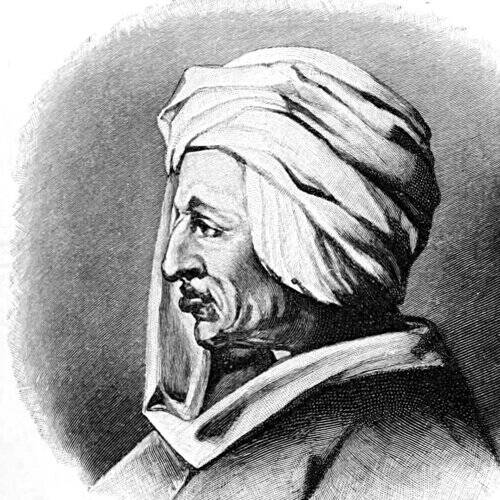
- Occupations
- physicianastronomergeographercartographermathematician
- Biography
-
Paolo dal Pozzo Toscanelli was an Italian mathematician, astronomer, and cosmographer.
-
Fausto Veranzio
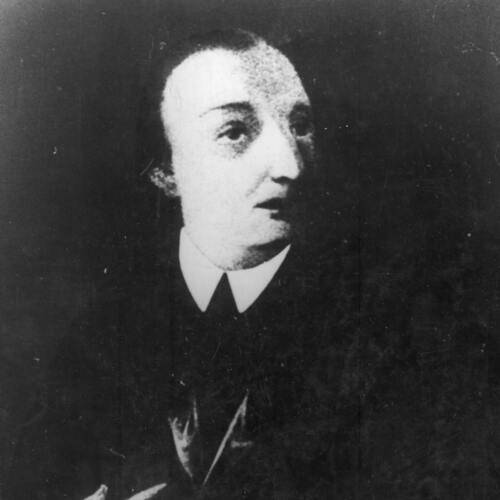
- Occupations
- inventorRenaissance humanistdiplomatphilologistarchitect
- Biography
-
Fausto Veranzio was a Croatian polymath, diplomat and bishop from Šibenik, then part of the Republic of Venice. He is a scientist recognised for his genius as both a Croatian and as a Croatian-Hungarian.
-
Ippolito Nievo
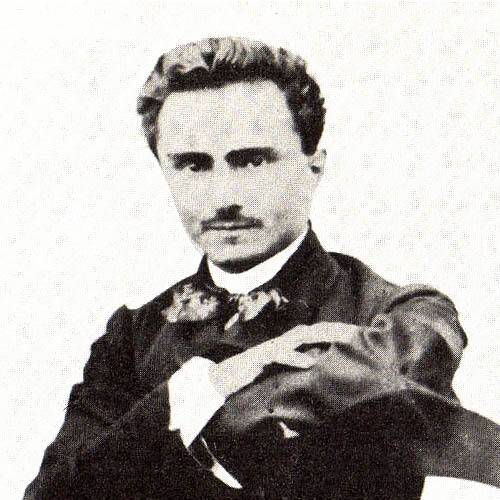
- Occupations
- Garibaldinopoetscience fiction writerwriterjournalist
- Biography
-
Ippolito Nievo was an Italian writer, journalist and patriot. His Confessions of an Italian is widely considered the most important novel about the Italian Risorgimento.
-
Giuseppe Sinopoli
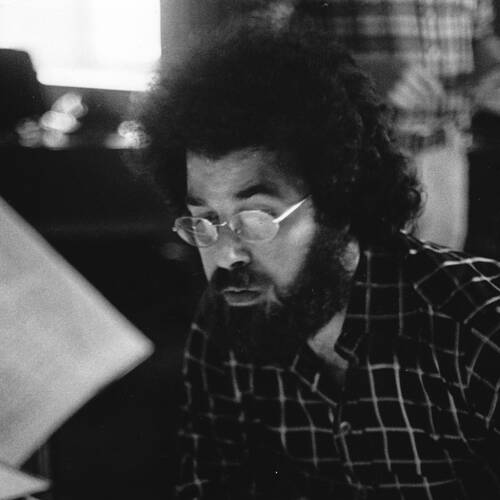
- Occupations
- composerconductorcollectormusic educator
- Biography
-
Giuseppe Sinopoli was an Italian conductor and composer.
-
Alessandro Marcello
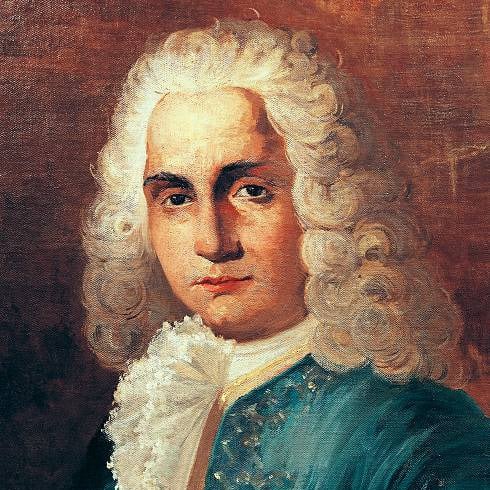
- Enrolled in the University of Padua
- Studied philosophy and mathematics
- Occupations
- composerpoetphilosophermathematicianjurist
- Biography
-
Alessandro Ignazio Marcello was an Italian nobleman and composer.
-
Paolo Sarpi
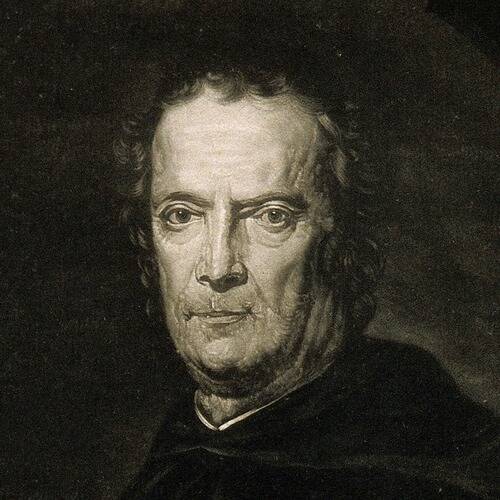
- Occupations
- philosopherreligious figurewriterastronomeranatomist
- Biography
-
Paolo Sarpi, O.S.M. was an Italian Servite friar and Catholic priest who was a notable historian, scientist, canon lawyer, polymath and statesman active on behalf of the Venetian Republic during the period of its successful defiance of the papal interdict (1605–1607) and its war (1615–1617) with Austria over the Uskok pirates. His writings, frankly polemical and highly critical of the Catholic Church and its Scholastic tradition, "inspired both Hobbes and Edward Gibbon in their own historical debunkings of priestcraft." Sarpi's major work, the History of the Council of Trent (1619), was published in London in 1619; other works: a History of Ecclesiastical Benefices, History of the Interdict and his Supplement to the History of the Uskoks, appeared posthumously. Organized around single topics, they are early examples of the genre of the historical monograph.
-
Antonio Rosmini-Serbati
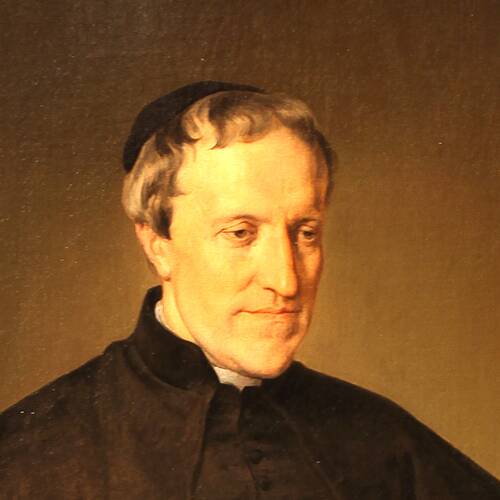
- Occupations
- writerpriestphilosopher
- Biography
-
Antonio Francesco Davide Ambrogio Rosmini-Serbati, IC was an Italian Catholic priest and philosopher. He founded the Rosminians, officially the Institute of Charity, and pioneered the concept of social justice and Italian Liberal Catholicism.
-
Giancarlo Galan
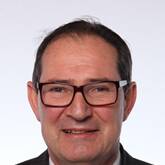
- Occupations
- politician
- Biography
-
Giancarlo Galan is an Italian politician.
-
Tullio Levi-Civita
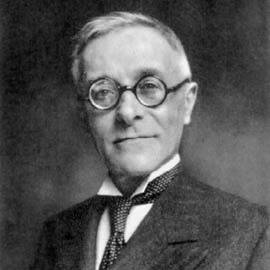
- Occupations
- physicistmathematician
- Biography
-
Tullio Levi-Civita, ForMemRS was an Italian mathematician, most famous for his work on absolute differential calculus (tensor calculus) and its applications to the theory of relativity, but who also made significant contributions in other areas. He was a pupil of Gregorio Ricci-Curbastro, the inventor of tensor calculus. His work included foundational papers in both pure and applied mathematics, celestial mechanics (notably on the three-body problem), analytic mechanics (the Levi-Civita separability conditions in the Hamilton–Jacobi equation) and hydrodynamics.
-
Anna Kuliscioff
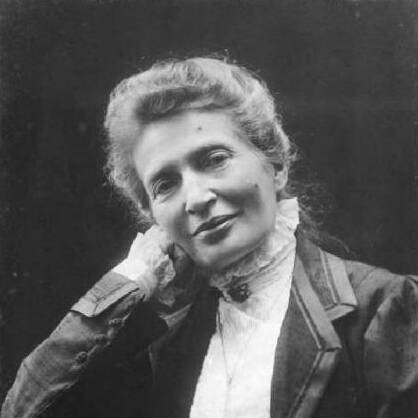
- Occupations
- editorpoliticianphysicianjournalist
- Biography
-
Anna Kuliscioff was a Russian-born Italian revolutionary, a prominent feminist, an anarchist influenced by Mikhail Bakunin, and eventually a Marxist socialist militant. She was mainly active in Italy, where she was one of the first women to graduate in medicine.
-
Vittorino da Feltre
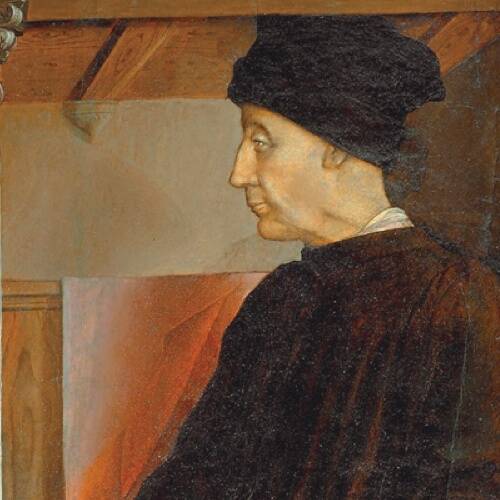
- Occupations
- humanisteducatorteacherRenaissance humanistphilosopher
- Biography
-
Vittorino da Feltre was an Italian humanist and teacher. He was born in Feltre, Belluno, Republic of Venice and died in Mantua. His real name was Vittorino Rambaldoni. It was in Vittorino that the Renaissance idea of the complete man, or l'uomo universale — health of body, strength of character, wealth of mind — reached its first formulation.
-
Thomas Cajetan
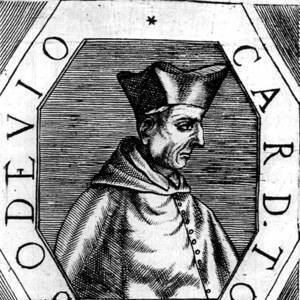
- Occupations
- Catholic bishopCatholic priesttheologianphilosopherfriar
- Biography
-
Thomas Cajetan OP, also known as Gaetanus, commonly Tommaso de Vio or Thomas de Vio, was an Italian philosopher, theologian, the Master of the Order of Preachers 1508 to 1518, and cardinal from 1517 until his death. He was a leading theologian of his day who is now best known as the spokesman for Catholic opposition to the teachings of Martin Luther and the Protestant Reformation while he was the Pope's legate in Augsburg, and among Catholics for his extensive commentary on the Summa Theologica of Thomas Aquinas.
-
Ulisse Aldrovandi
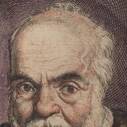
- Occupations
- entomologistphysiciannaturalistuniversity teachergeologist
- Biography
-
Ulisse Aldrovandi was an Italian naturalist, the moving force behind Bologna's botanical garden, one of the first in Europe. Carl Linnaeus and the comte de Buffon reckoned him the father of natural history studies. He is usually referred to, especially in older scientific literature in Latin, as Aldrovandus; his name in Italian is equally given as Aldroandi.
-
Daniele Manin
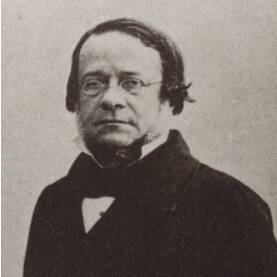
- Occupations
- politicianmilitary personnellawyer
- Biography
-
Daniele Manin was an Italian patriot, statesman and leader of the Risorgimento in Venice.
-
Bernardino Telesio
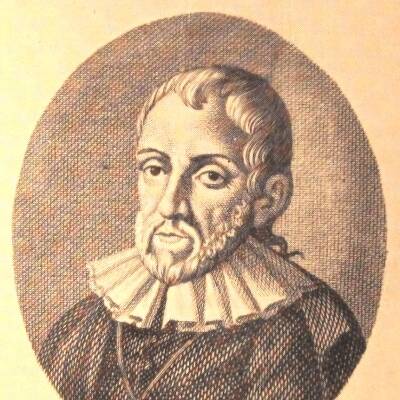
- Occupations
- naturalistphilosopher
- Biography
-
Bernardino Telesio was an Italian philosopher and natural scientist. While his natural theories were later disproven, his emphasis on observation made him the "first of the moderns" who eventually developed the scientific method.
-
Jan Jesenius
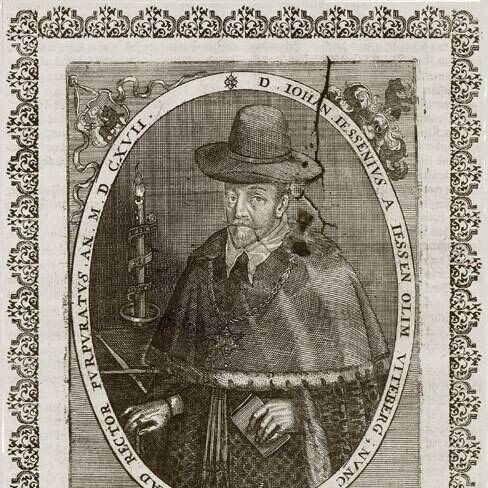
- Occupations
- philosopherphysiciandiplomatpedagoguewriter
- Biography
-
Jan Jesenius, also written as Jessenius, was a Bohemian physician, politician and philosopher.
-
Massimo Polidoro
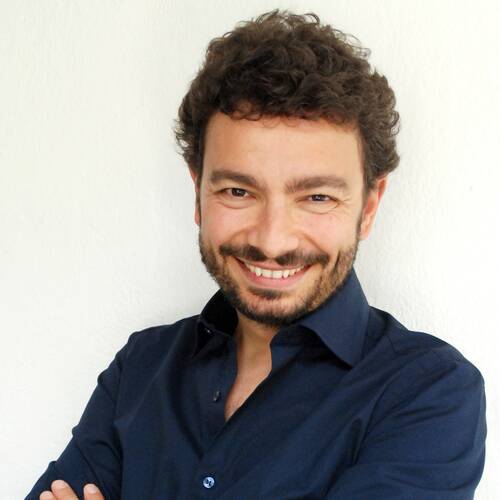
- Occupations
- writerlecturerjournalistuniversity teacherpresenter
- Biography
-
Massimo Polidoro is an Italian psychologist, writer, journalist, television personality, and co-founder and executive director of the Italian Committee for the Investigation of Claims of the Pseudosciences (CICAP).
-
Erika Stefani
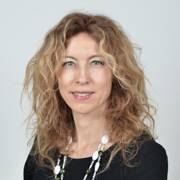
- Occupations
- lawyerpolitician
- Biography
-
Erika Stefani is an Italian lawyer and politician who served as the Italian Minister of Regional Affairs and Autonomies from 1 June 2018 to 5 September 2019 and as the Italian Minister for Disabilities since 13 February 2021. A member of Lega Nord, she has served as a member of the Italian Senate since 15 March 2013.
-
Simon Marius
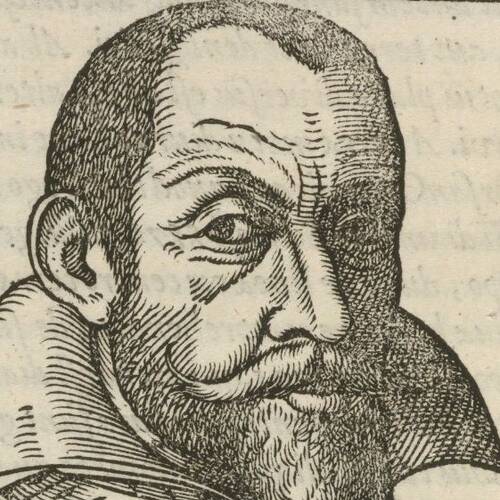
- Enrolled in the University of Padua
- Studied in 1601-1605
- Occupations
- astronomerphysicianmathematician
- Biography
-
Simon Marius was a German astronomer. He was born in Gunzenhausen, near Nuremberg, but spent most of his life in the city of Ansbach. He is best known for being among the first observers of the four largest moons of Jupiter, and his publication of his discovery led to charges of plagiarism.
-
Niccolò Tommaseo
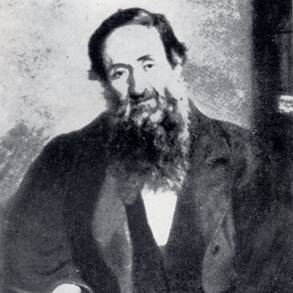
- Occupations
- politicianjournalisthistorianlinguistpoet
- Biography
-
Niccolò Tommaseo was a Dalmatian Italian linguist, journalist and essayist, the editor of a Dizionario della Lingua Italiana (A Dictionary of the Italian Language) in eight volumes (1861–74), of a dictionary of synonyms (1830) and other works. He is considered a precursor of the Italian irredentism.
-
Beniamino Andreatta
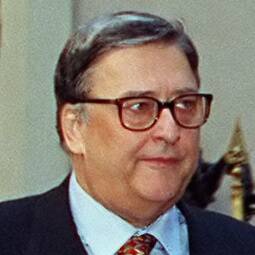
- Occupations
- university teacherpoliticianeconomistdiplomat
- Biography
-
Beniamino "Nino" Andreatta was an Italian economist and politician. He was a member of Christian Democracy, and one of the founders of the Italian People's Party in 1994 and of the Olive Tree centre-left coalition in 1996.
-
Sanctorius
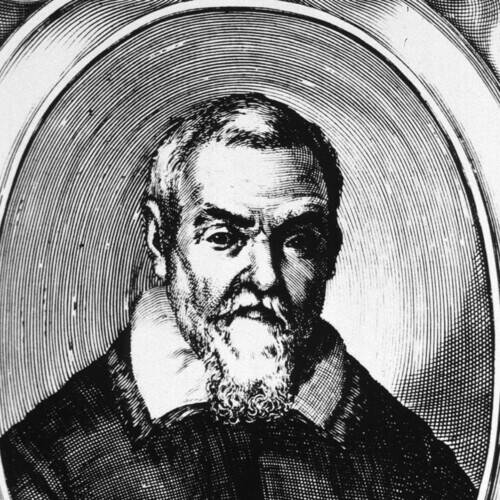
- Occupations
- physiologistphysicianinventor
- Biography
-
Santorio Santorio whose real name was Santorio Santori (or de' Sanctoriis) better known in English as Sanctorius of Padua was an Italian physiologist, physician, and professor, who introduced the quantitative approach into the life sciences and is considered the father of experimental physiology. He is also known as the inventor of several medical devices. His work De Statica Medicina, written in 1614, saw many publications and influenced generations of physicians.
-
Lawrence of Brindisi
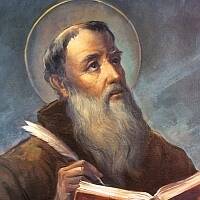
- Occupations
- diplomatCatholic priest
- Biography
-
Lawrence of Brindisi, OFM Cap., born Giulio Cesare Russo, was a Neapolitan Catholic priest, theologian and member of the Order of Friars Minor Capuchin. An accomplished linguist, in addition to his native Italian, Lawrence could read and speak Latin, Hebrew, Greek, German, Czech, Spanish, and French fluently. Lawrence was ordained a priest at the age of 23. Lawrence was beatified on 1 June 1783 and canonized as a saint on 8 December 1881.
-
Daniele Franco
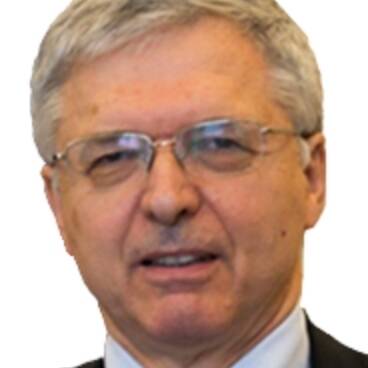
- Occupations
- bankereconomistcivil servant
- Biography
-
Daniele Franco is an Italian economist, central banker and civil servant who served as Minister of Economy and Finance in the cabinet of Prime Minister Mario Draghi from 2021 to 2022. From 2020 until 2021, he served as director-general of the Bank of Italy.
-
Étienne Dolet
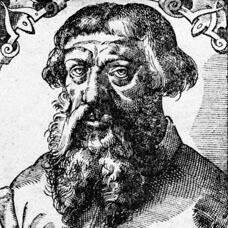
- Occupations
- translatorpoetprinterclassical scholarpublisher
- Biography
-
Étienne Dolet was a French scholar, translator and printer. He was a controversial figure throughout his lifetime, which was buffeted by the opposing forces of the Renaissance and the French Inquisition. His early attacks upon the Inquisition and the municipal authorities of Toulouse, together with his later publications in Lyon, caused the French Inquisition to monitor his activities closely. After several stays in prison, the combined efforts of the parlement of Paris, the Inquisition, and the theological faculty of the Sorbonne resulted in his conviction for heresy and a death sentence. He was hung and burned with his books on the Place Maubert in Paris. In modern times, Dolet is remembered as a martyr for what is now known as freedom of speech and freedom of the press.
-
Giacomo Rizzolatti
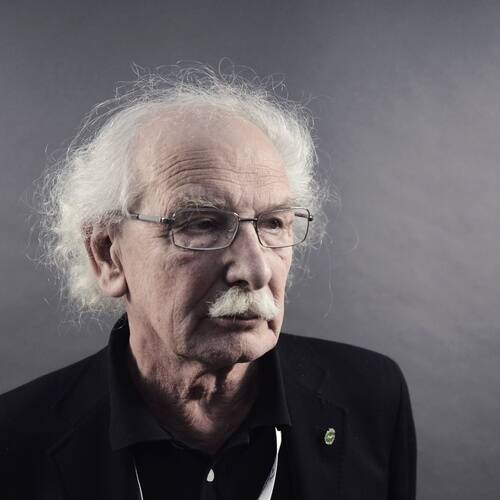
- Occupations
- university teacherneurologistvideo artistpsychologist
- Biography
-
Giacomo Rizzolatti is an Italian neurophysiologist who works at the University of Parma. Born in Kyiv, UkSSR, he is the Senior Scientist of the research team that discovered mirror neurons in the frontal and parietal cortex of the macaque monkey, and has written many scientific articles on the topic. He also proposed the premotor theory of attention. He is a past president of the European Brain and Behaviour Society. Rizzolatti was the 2007 co-recipient, with Leonardo Fogassi and Vittorio Gallese, for the University of Louisville Grawemeyer Award for Psychology. He is an elected member of the Academia Europaea, National Academy of Sciences, and Royal Society
-
James Gregory
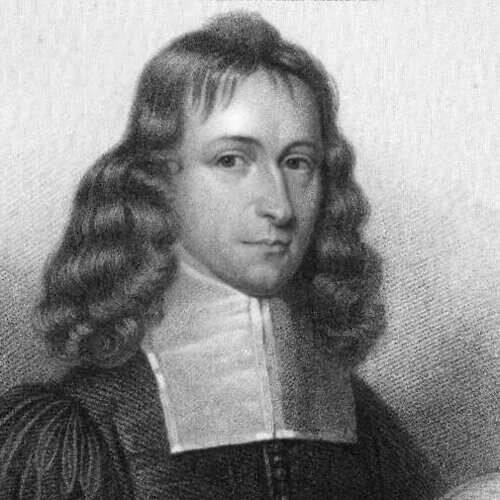
- Enrolled in the University of Padua
- Studied in 1664-1667
- Occupations
- inventorastronomeruniversity teacherwritermathematician
- Biography
-
James Gregory FRS was a Scottish mathematician and astronomer. His surname is sometimes spelt as Gregorie, the original Scottish spelling. He described an early practical design for the reflecting telescope – the Gregorian telescope – and made advances in trigonometry, discovering infinite series representations for several trigonometric functions.
-
Pietro Pomponazzi
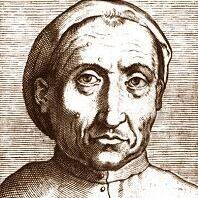
- Occupations
- university teacherwriterprofessorphilosopher
- Biography
-
Pietro Pomponazzi was an Italian philosopher. He is sometimes known by his Latin name, Petrus Pomponatius.
-
Giuseppe Berto
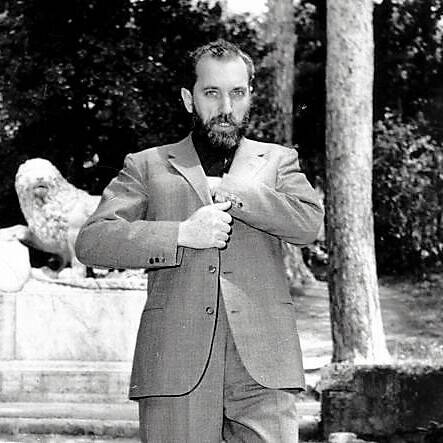
- Occupations
- writerfilm directorscreenwriter
- Biography
-
Giuseppe Berto was an Italian writer and screenwriter. He is mostly known for his novels The Sky Is Red (Il cielo è rosso) and Incubus (Il male oscuro).
-
Andrea Zanzotto
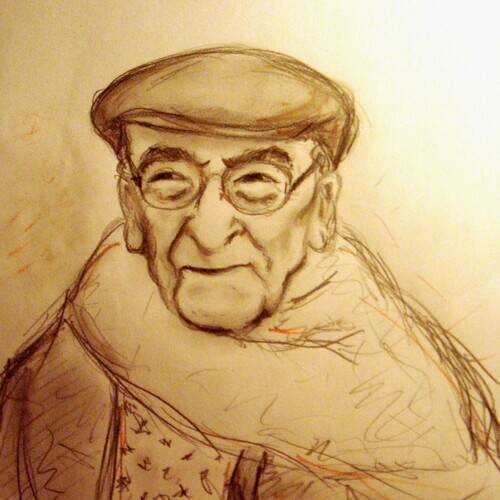
- Occupations
- screenwriterliterary criticpoetwritertranslator
- Biography
-
Andrea Zanzotto was an Italian poet.
-
Peter Martyr Vermigli
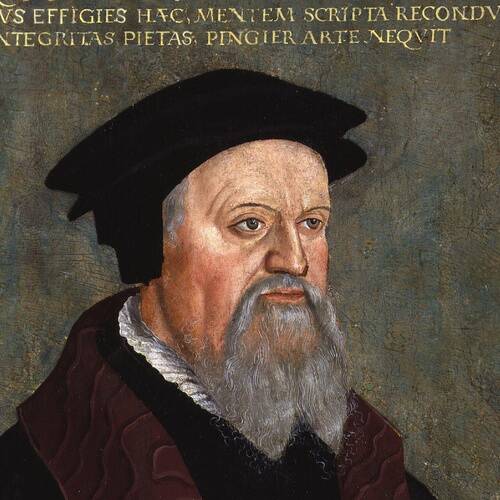
- Occupations
- writeruniversity teachertheologian
- Biography
-
Peter Martyr Vermigli was an Italian-born Reformed theologian. His early work as a reformer in Catholic Italy and his decision to flee for Protestant northern Europe influenced some other Italians to convert and flee as well. In England, he influenced the Edwardian Reformation, including the Eucharistic service of the 1552 Book of Common Prayer. He was considered an authority on the Eucharist among the Reformed churches, and engaged in controversies on the subject by writing treatises. Vermigli's Loci Communes, a compilation of excerpts from his biblical commentaries organised by the topics of systematic theology, became a standard Reformed theological textbook.
-
Felice Casorati
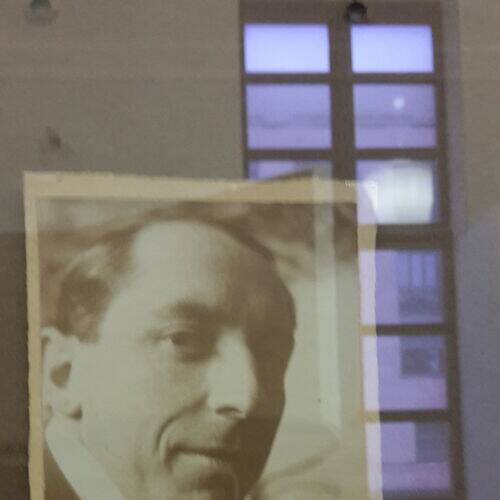
- Occupations
- sculptorpainterdesignergraphic artist
- Biography
-
Felice Casorati was an Italian painter, sculptor, and printmaker. The paintings for which he is most noted include figure compositions, portraits and still lifes, which are often distinguished by unusual perspective effects.
-
Paolo Giovio
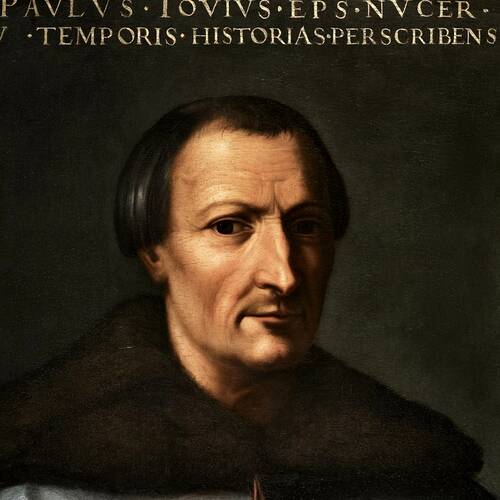
- Occupations
- physicianhistorianbiographerhumanistCatholic bishop
- Biography
-
Paolo Giovio was an Italian physician, historian, biographer, and prelate.
-
Camillo Boito
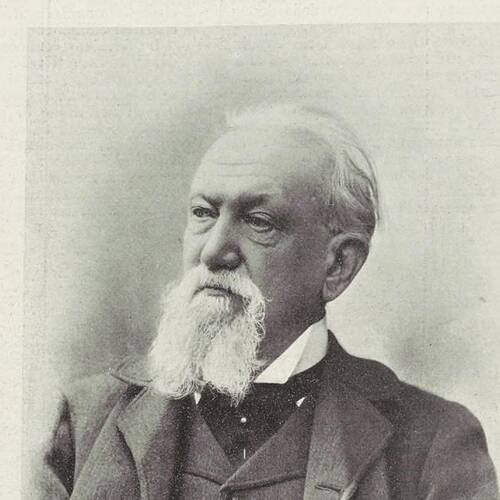
- Occupations
- art historianarchitectwriterart critic
- Biography
-
Camillo Boito was an Italian architect and engineer, and a noted art critic, art historian and novelist. He was the brother of Arrigo Boito, the friend and librettist of the Italian composer Giuseppe Verdi. Camillo Boito has as his favorite student and heir Enrico Zanoni.
-
Francesco Carnelutti
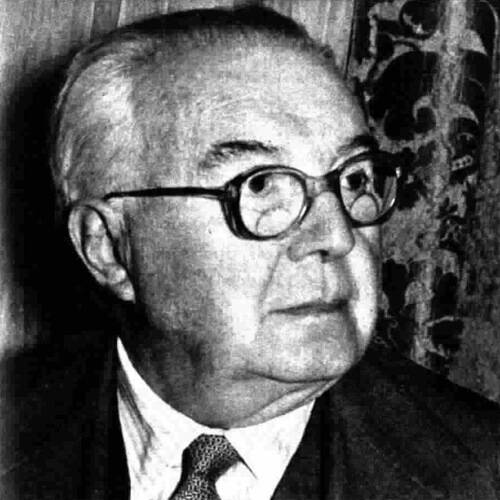
- Occupations
- lawyerjurist
- Biography
-
Francesco Carnelutti was an Italian jurist and lawyer.
-
Hieronymus Fabricius
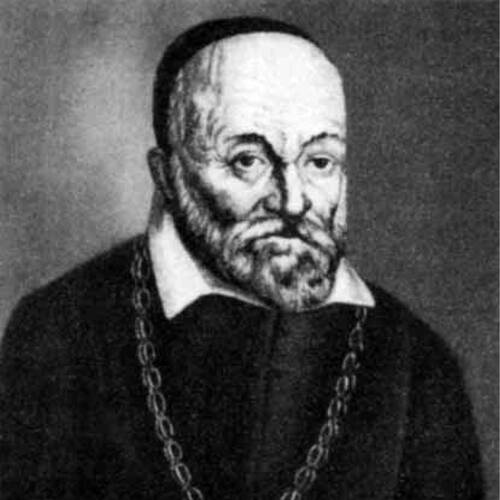
- Occupations
- university teachersurgeonanatomist
- Biography
-
Girolamo Fabrici d'Acquapendente, also known as Girolamo Fabrizio or Hieronymus Fabricius, was a pioneering anatomist and surgeon known in medical science as "The Father of Embryology."
-
Alois Negrelli
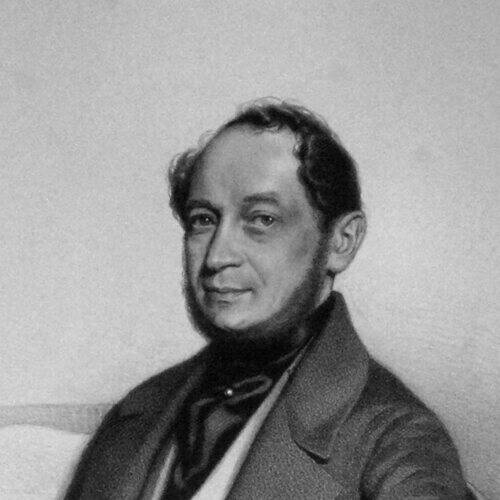
- Occupations
- engineercivil engineerarchitect
- Biography
-
Nikolaus Alois Maria Vinzenz Negrelli, Ritter von Moldelbe was a Tyrolean civil engineer and railroad pioneer mostly active in parts of the Austrian Empire, Switzerland, Germany and Italy.
-
Ogier Ghiselin de Busbecq
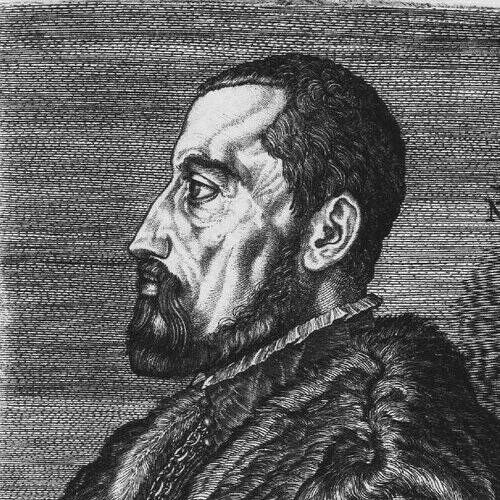
- Occupations
- writerdiplomatbotanist
- Biography
-
Ogier Ghiselin de Busbecq, sometimes Augier Ghislain de Busbecq, was a 16th-century Flemish writer, herbalist and diplomat in the employ of three generations of Austrian monarchs. He served as ambassador to the Ottoman Empire in Constantinople and in 1581 published a book about his time there, Itinera Constantinopolitanum et Amasianum, re-published in 1595 under the title of Turcicae epistolae or Turkish Letters. His letters also contain the only surviving word list of Crimean Gothic, a Germanic dialect spoken at the time in some isolated regions of Crimea. He is credited with the introduction of tulips into Western Europe and to the origin of their name.
-
Antoine Perrenot de Granvelle
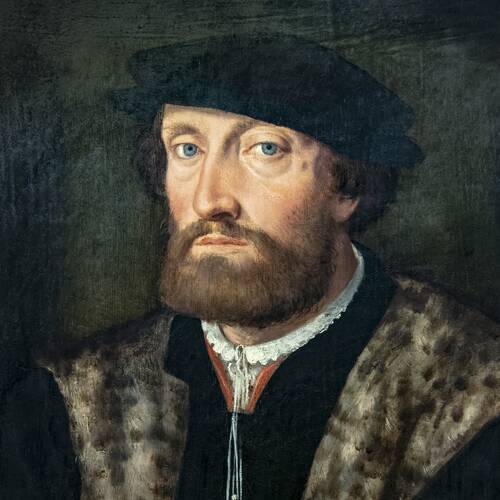
- Occupations
- politiciandiplomatCatholic bishopCatholic priestpriest
- Biography
-
Antoine Perrenot de Granvelle, Comte de La Baume Saint Amour, typically known as Cardinal Granvelle in English, was a Burgundian statesman, made a cardinal, who followed his father as a leading minister of the Spanish Habsburgs, and was one of the most influential European politicians during the time which immediately followed the appearance of Protestantism in Europe; "the dominating Imperial statesman of the whole century". He was also a notable art collector, the "greatest private collector of his time, the friend and patron of Titian and Leoni and many other artists".
-
Carl Ritter von Ghega

- Occupations
- engineercivil engineerrailway engineerbridge builderarchitect
- Biography
-
Karl Ritter von Ghega or Karl von Ghega was an Albanian nobleman and the designer of the Semmering Railway from Gloggnitz to Mürzzuschlag. During his time, he was the most prominent of Austrian railway engineers and architects.
-
Michel de l'Hôpital
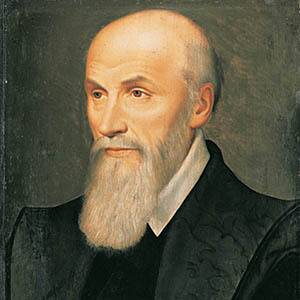
- Occupations
- politicianwriterpoetjurist
- Biography
-
Michel de l'Hôpital was a French lawyer, diplomat and chancellor during the latter Italian Wars and the early French Wars of Religion. The son of a doctor in the service of Constable Bourbon he spent his early life exiled from France at Bourbon's and then the emperors court. When his father entered the service of the House of Lorraine, he entered the patronage network of Charles, Cardinal of Lorraine. Through his marriage to Marie Morin, he acquired a seat in the Paris Parlement. In this capacity he drew up the charges for the king, concerning the defenders of Boulogne who surrendered the city in 1544, before taking a role as a diplomat to the Council of Trent in 1547. The following year he assisted Anne d'Este in the details of her inheritance to ensure she could marry Francis, Duke of Guise.














